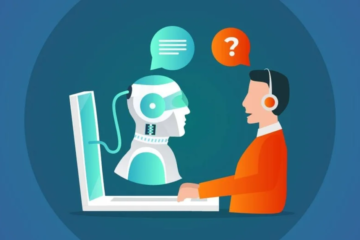Would you like to be one of the biggest winners of the AI boom?
Then you need some quick business ideas to start creating real market value using AI.
You see, several AI agent business ideas can make you a fortune from the comfort of your home.
However, while the market exists, creating an AI agent business that will actually generate revenue is not as easy as it sounds. This is because many people are already using AI to some extent. In fact, if you’re only just thinking of quick business ideas that can be executed with AI right now, you’re probably late to the party already.
Therefore, to create a profitable AI agent-powered business, you need to raise the bar—create something that integrates seamlessly with a customer’s workflow to improve business processes while lowering costs.
So, here goes:
8 of the most lucrative AI agent business ideas to explore in 2025 and detailed insight on how you can streamline them, improve business performance, and earn good money doing this.
Are you ready to start your AI agent business?
What Are AI Agents?
AI agents are computer software that learn from their environment and make informed decisions based on the signals they receive. Put simply, they mimic human decision-making.
Unlike traditional software, which relies on fixed logic and acts linearly, these agents adapt to their environment and can make autonomous decisions based on context. As such, they can respond to dynamic situations, learn from feedback, and improve at executing tasks, just like humans do.
So, how does computer software achieve this level of autonomous decision-making?
AI developers use a combination of these technologies to build AI agents:
- Large Language Models (LLMs): These are advanced AI systems trained to decipher and produce human language. These systems are typically built using various deep learning techniques, particularly a type of model known as transformers.
To ensure that they are adept at recognizing patterns in language and producing sensible responses based on a user’s query, developers train them on large datasets.
- Data pipelines: At this point, you must have realized that data is central to the functioning of any AI agent. But not every data suffices—only the best—because the quality of data, and not just the availability of it, determines how well the AI agent performs. So, how do you ensure that you can obtain large, high-quality data? You use a data pipeline.
Data pipelines are simply a structured process for gathering data and cleaning it up so you can use it in training an AI agent. It involves collecting, cleaning, transforming, and organizing large volumes of data so that machine learning algorithms can use it.
- Decision frameworks: As the name suggests, the decision framework is a set of rules that an AI agent uses to arrive at a desired outcome. For example, if you take a picture and ask ChatGPT to identify it, or if you need to write an essay and input a prompt, it must analyze the information it has received and then provide a context-based response. The decision framework is how it arrives at the right outcome, consistent with its training.
Common decision frameworks include mathematical models, sets of probabilities, or even trees of conditional rules.
- APIs and automation tools: What’s the point of all that computing power and autonomy if AI agents are not applied in everyday tasks? With APIs, we can connect AI agents to applications and have them perform tasks on our behalf. In essence, APIs function as bridges between an AI agent and other applications, allowing them to interact.
For example, let’s say you want to hang out with your friends on the weekend—you can ask your AI to make a reservation. To do this, it will use an API to check prices and availability. This brings us to our next point: automation. Think of those boring tasks that are repetitive and cumbersome. What if you could just get someone else to do them? With AI, that isn’t a fantasy—that is reality. This ability to handle repetitive tasks makes them a valuable asset to business teams.
Without further ado, here are some of the most lucrative AI agent business ideas to look into in 2025.
1. Sales Development Agents: The Cold Outreach Killer
At the end of the day, sales come down to percentages.
The more people you reach out to, the more likely you are to make a sale. This approach to sales demands consistently high outreach volumes. This can easily become a daunting task, especially for businesses with small marketing/sales teams.
So, how does one tip the scale in their favor? By using AI agents to automate outreaches. These agents can perform the following tasks:
- Lead generation through database crawling
- Personalize first messages and follow-ups.
- Leads scoring
- Automated meeting scheduling
One particularly impressive aspect of these agents is that they can execute large-scale operations in such a short time, and they do not need to take breaks or days off.
That’s your junior SDR interns on steroids.
2. Customer Support Agents: Instant Replies, Lower Costs
Customers don’t want their minds blown; they want their product to work like you said it would. However, sometimes things don’t always go as planned, and issues can arise.
When it does, they expect you to fix it immediately, and they judge your brand by how promptly you can. That is a lot of pressure, especially considering that customer satisfaction issues are one of the main reasons users switch brands.
AI agents take the pressure off your shoulders. Because they mimic human agents, they are well-suited for handling customer queries and improving customer satisfaction and loyalty in the long term.
Unlike generic chatbots, these agents can do the following:
- Understand context from a customer’s message
- Search product documentation dynamically
- Access order history and user behavior
- Escalate complex issues to human reps.
Deploying AI agents for your customer support can reduce cost, supercharge performance, and improve brand perception, which is the backbone of a competitive brand.
3. AI Content Repurposing Agents: Maximize Every Piece
Customers interact with your business across touchpoints. Every channel that is not optimized results in drop-offs and untapped potential. However, content creation is challenging—it is both time-consuming and expensive. The big guys might find a way to make it work, but how are small businesses to survive?
It’s simple: content repurposing —using AI
This way, brands don’t have to create content from scratch for different channels. They can just take what’s working on one platform and repurpose it for the other channels. For example, a brand might create a long-form video for YouTube or a podcast and use AI to create short reels for Instagram and TikTok. Or they could write a blog post and then use AI to write a series of tweets for X.
4. AI Research Assistants: Your Data-Driven Analyst
With expert advice from AI consulting services, businesses are utilizing AI assistants to analyze data, summarize reports, and extract insights, enabling faster and more informed strategic decision-making. This is often done in real-time using automation.
Automation enables businesses to make informed decisions on the fly and capitalize on opportunities as they arise, ultimately driving profits. For example, institutional investors—such as hedge funds and investment firms—in the cryptocurrency market often use AI bots to analyze the market and generate profits from arbitrage, scalp short-term price movements, automate high-frequency trades, detect entry and exit points, and manage risk across multiple exchanges.
5. Personal Productivity Agents: Time-Saving Sidekicks
Some businesses are essentially one-man teams. For these individuals, a typical workday can be a struggle to optimize performance, despite the amount of effort they put in. This can be discouraging and eventually lead to burnout. For these solo-entrepreneurs, integrating AI agents into their workflow not only improves efficiency but also helps them stay proactive.
These agents can schedule marketing tasks, manage calendars, prioritize tasks, and handle customer service. That’s like having several team members supporting your business and handling the small tasks while you focus on what’s really important. They even integrate with smart devices and voice assistants, so you don’t have to lift a finger to get them working.
6. Recruitment Agents: The Smart Hiring Machine
Recruitment is expensive and time-consuming. With AI, you can scrape job boards and match resumes at the snap of a finger. You can also use these agents to conduct initial screening, score applicants, and schedule interviews with built-in availability checks.
As one of the leading AI agents companies, we help startups and enterprises deploy intelligent recruitment agents that automate sourcing, filtering, and scheduling—without the need to build internal HR infrastructure. This level of automation takes operational efficiency to a whole new level.
7. AI-Powered Niche Agents: Solutions for Specific Industries
Industry-specific AI agents bring the bigger bucks. These agents meet niche needs, and as a result, customers are willing to pay more for them. You can create AI tools that target the following industries:
- Retail: AI agents can be used to forecast inventory needs based on weather, trends, and promotions
- Healthcare: AI agents can be used to triage symptoms and to prioritize cases based on urgency.
- EdTech: AI agents can be used to create customized lesson plans and quizzes for students that cater to their unique learning needs or are tailored to each student’s performance.
- Finance: An agent that monitors transactions and flags anomalies in real time
Because of their specialty, these AI agents are harder to build; however, they make you a fortune.
8. AI Implementation Consultants: Help Others Use AI Agents
Let’s say you don’t want to build software. Great. There’s still a lot of money to be made by helping businesses utilize AI agents that already exist.
As an Implementation consultant, you will do the following:
- Analyze business needs
- Pick the best AI tools or agents.
- Configure them for specific workflows.
- Train staff and monitor performance.
Conclusion
Developing an AI solution is relatively straightforward, but creating an agent that effectively addresses a client’s specific needs is a rare achievement. It requires an in-depth understanding of the client, their pain point, value, and workflow.
As such, development is not merely a technical matter; it is also a business concern. Therefore, to build a profitable AI agent business, you need to partner with an AI agent development company that adopts a robust approach to AI development. At Debut Infotech Pvt Ltd., our teams comprise developers, business analysts, and compliance experts. This way, we can help you build high-performing apps that solve client-specific problems. Reach out today.



